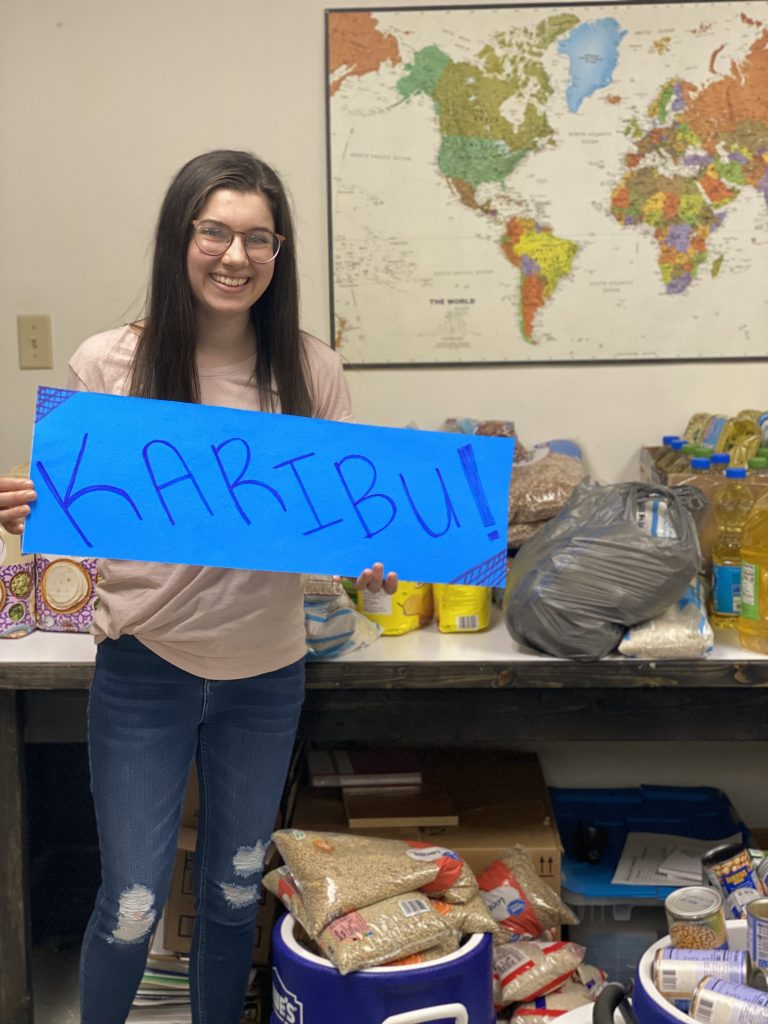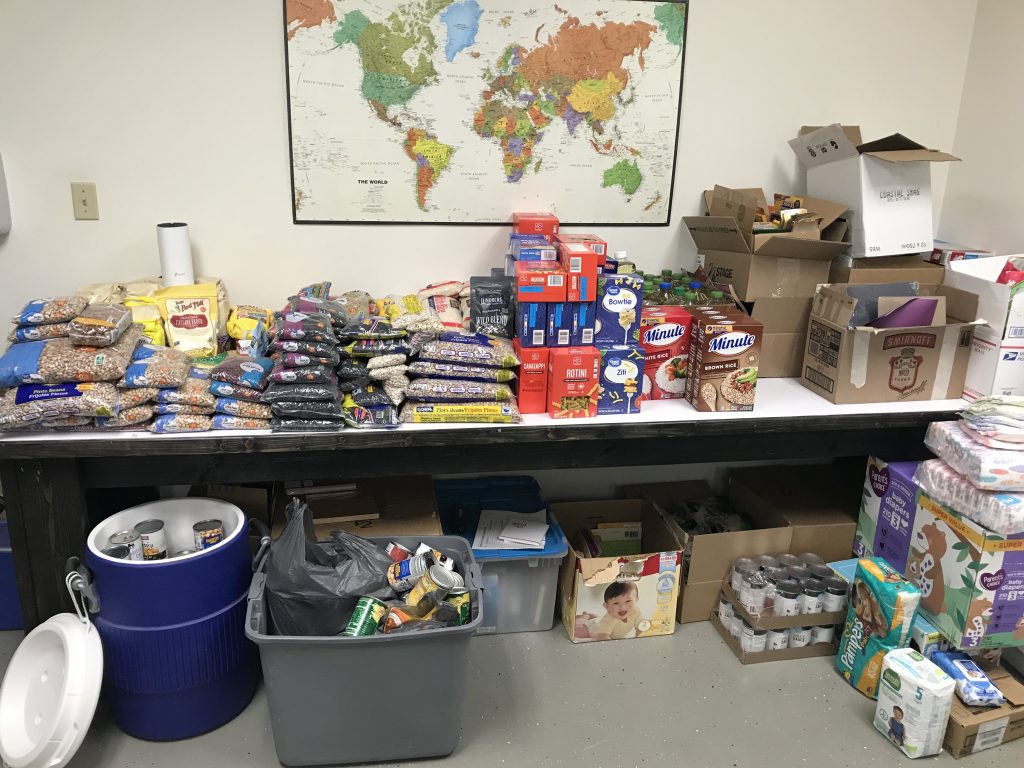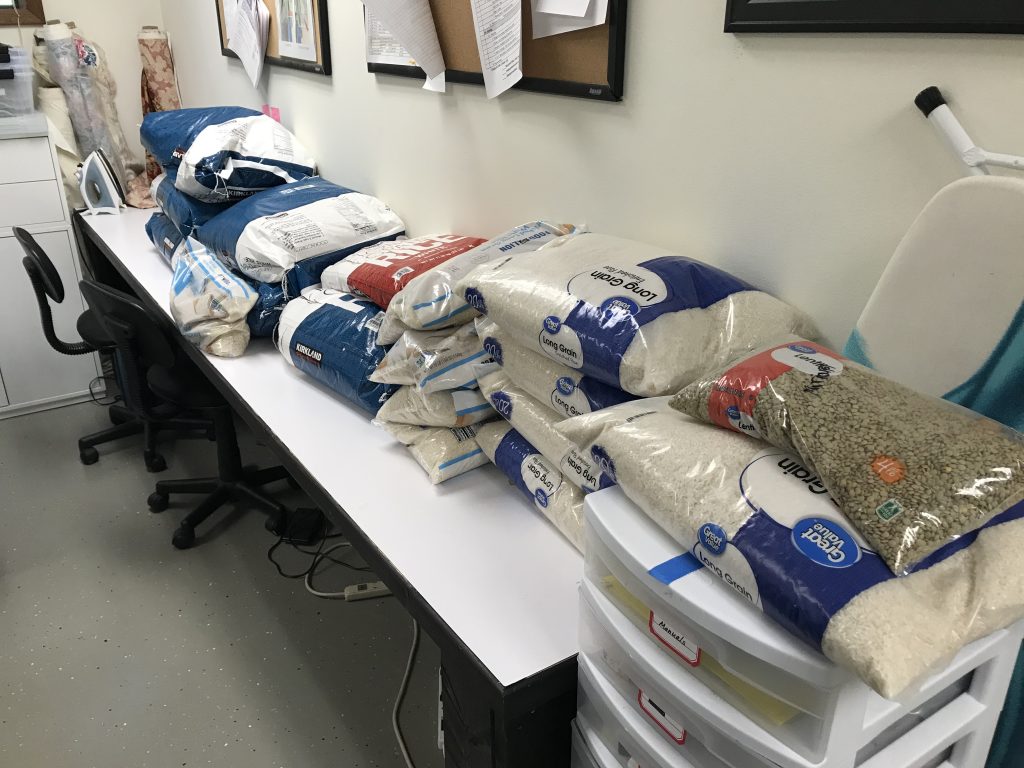Posts Tagged ‘Triad’
Resiliency & Hope in the Midst of Persecution
Fleeing Persecution in Cambodia
When Sithy and his wife, Saobot, arrived in the United States in March of 2022, he was not sure what his life would look like. He had been rejected, persecuted, and imprisoned for his political affiliation in Cambodia.
Both Sithy and Saobot’s siblings and other family members remain in Cambodia. While they do not have any relatives here in the United States, they have already found solace in his neighbors – both those who partner with World Relief Triad and the Cambodian community that surrounds them.
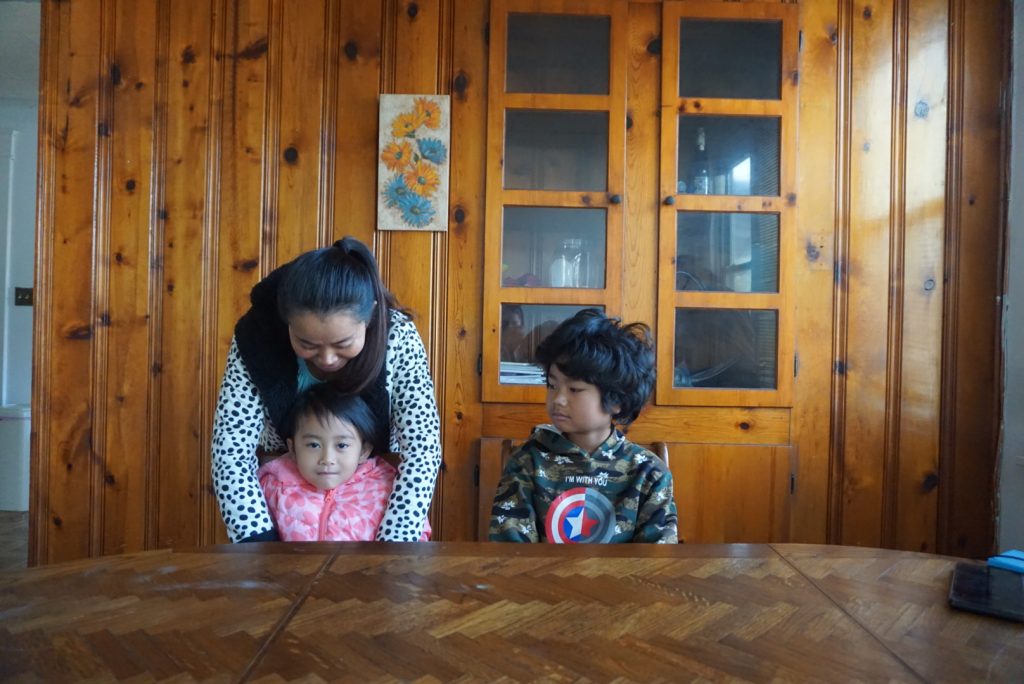
“My friends from the Cambodian community know my story of why I’m an immigrant,” Sithy says. “I’m a refugee because of political issues. When I was in Cambodia, I was captured and put in prison. They were pressuring me to live there. After I fled to Thailand, people followed me and tried to capture and kill me.”
He recalls the way that it felt to finally be in Thailand but not in full safety yet. “When I left Cambodia, I didn’t have any hope,” Sithy says.
“When I was leaving Thailand, I had even less hope. I felt like I was floating in the middle of the sea.”
Finally, when Sithy arrived in the United States with his wife and children, he gained a hope that he had never thought possible. “Right now, I’m happy,” he says. “I have freedom with the hope that I live in a democratic country like the United States.”
Life After Arriving in the U.S.
It is no wonder that Sithy “hit the ground running” once he finally was able to begin his life in the United States. Within weeks of adjusting to his new home, Sithy began working for two different people. He also received some extra funding from World Relief which covered some of his rent and utilities easing the burden of housing costs.
With the money saved, combined with the money given to him by friends in the local Cambodian community, Sithy was able to pay for his first car. Now that Sithy has hope and stability in his life here in the Triad, he has already begun to make plans for his family.
“For myself, I need to find permanent work,” he says. “I know I will have help from World Relief and the community in the process of finding the right job for myself and my wife. I want her to continue her studies, and I plan to try and meet the GED requirements because the certificate I have from Cambodia isn’t eligible here without a high school degree.”
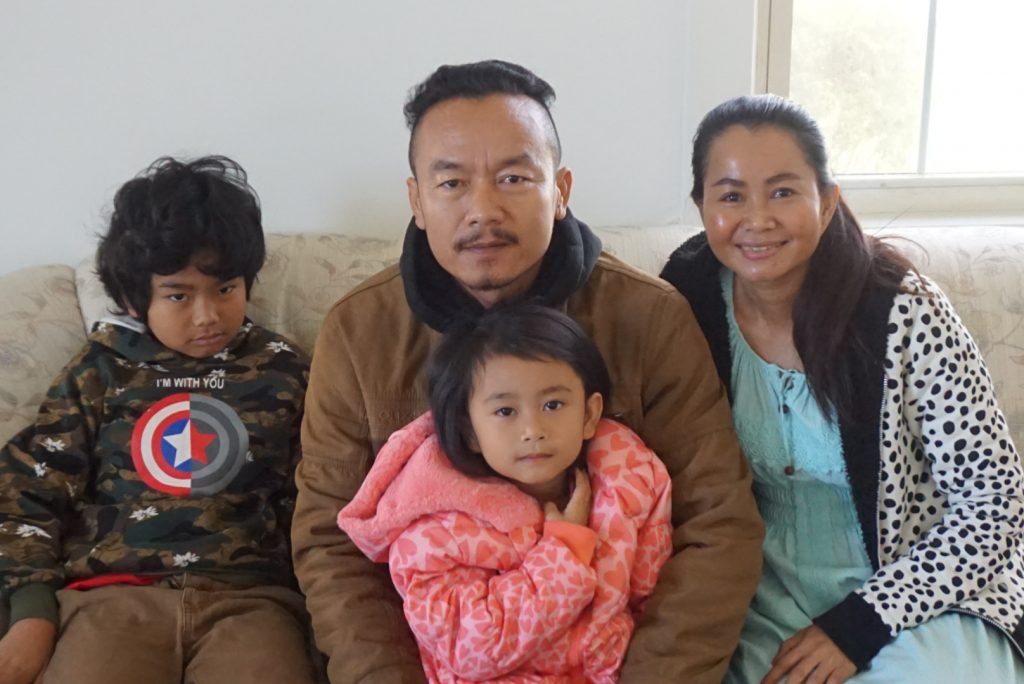
Sithy can now use his own car to transport himself and his wife to various ESL classes, personal appointments, and eventually their future places of employment! Because of supporters like you, World Relief Triad was able to ease housing costs through locally raised funds, giving newcomers like Sithy the ability to pay for and provide his own transportation for himself and his family.
Let’s Go Together for Those Who Have Yet to Come
Over the past two years, our office has faced many challenges. In the midst of a global pandemic, a new administration led to a large influx of arrivals which forced our office to ramp up in staff members, an ongoing war in Ukraine, and the fall of Kabul which ultimately led to thousands of Afghans being forced to flee their home country. Yet, our community remained to be a sanctuary for the displaced.
We invite you to join us as we cast a new vision, together, as we go forward into the reality of an uncertain future. When you give today, you join World Relief Triad in going further than we’ve ever previously dreamt possible.
Together, we can welcome more, like Sithy and Saobot, into a world of restored hope, peace, security and joy.
The Long Road to Citizenship: Prince’s Story
Reflecting on September as the time of year that we celebrate citizenship with #CitizenshipDay, a day inviting, “Americans to reflect on the rights and responsibilities of citizenship,” we invite you to continue reading to learn about one of our own’s story, Prince Mushunju and his wife, Laurette!
Becoming a citizen affords a lot of privileges and is an arduous process that can be uncertain for some. Prince Mushunju, Employment Services Coordinator at World Relief Triad, reflects on his and his wife’s experience one year since they received citizenship.
“To experience the respect that is had for a U.S. citizen — Now that we have passports, we see a very big difference in the respect people give us,” he says. “We’ve traveled to the same countries! So we can see the difference. Americans don’t always appreciate their privilege in being born in this country.”
Searching for Home
When Prince and his wife first arrived in the United States in 2015, they were expecting their first child. After living in a refugee camp in Uganda for nearly 12 years, they were ready to find a home. They decided before they had even arrived that America would be their home. “We considered this to be our home. So one of the first things we did was ask the question of what can we do to become permanent residents. How do we become citizens? We asked this from the first year.”

Prince can’t help but smile when he reflects on those first few days and weeks arriving in the U.S. He says that they even thought that they were being resettled in New York City because that’s where their first flight was landing. After weeks of research, Prince then had to readjust to the idea of actually living in Greensboro, North Carolina — “very different from New York,” Prince laughs.
“They picked us up from the airport and took us to a small house,” he says. “But even still, the love of the country helped us. We knew we needed to get that citizenship to feel like we were home.”

Enduring towards Freedom and Joy
The journey towards citizenship involved a lot of work that Prince says made his wife and himself feel like they were back in school. Since they had to apply individually, there was always the fear that one of them might get citizenship while the other didn’t.
“We felt joy and freedom once we learned we’d gotten citizenship,” Prince says. “There are things a citizen can do that someone who doesn’t have a permanent status cannot do. Now that we’ve come as refugees, and have gone through that process as well as the process of becoming a citizen, we feel like, ‘Wow. I can breathe and start living.'”
One way major way that their lives have changed now as citizens is not only in the way they travel (Prince and his family are planning to visit the Democratic Republic of Congo soon so that his children can see where he comes from), but also in applying for their parents and other family members to come to the U.S. now.
“The process will be much easier as citizens and not refugees now,” Prince says. “As long as I’m working and don’t have a record, they can come.” He concludes with a smile that it should be less than two years until they are all reunited.
At World Relief Triad, we are invested in providing holistic care for our clients, which includes assistance in legal immigration services, often. If you would like to learn more about this program or give towards it today, click below.
Sudanese Student Begins First Semester at Local University
Darelsalam Karama’s family arrived in the United States in 2018 when she was fourteen. In those four years, Darelsalam was placed in many different environments that brought about many challenges. “We started at Thomasville Middle School, and everything was so different from Sudan,” she says. “My native languages are Arabic and Zaghawa, so I went to the newcomer’s school. I was more comfortable there because there were a lot of refugees just like us.”
After just four years since she arrived in the United States, Darelsalam has received a full ride to High Point University.
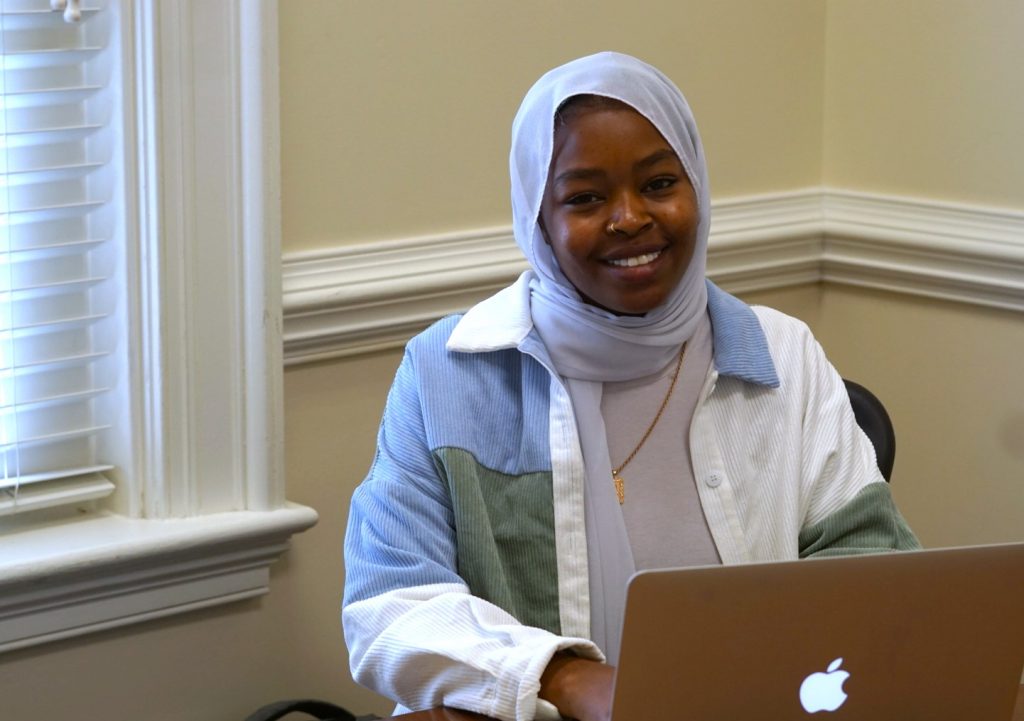
After six months at the newcomer’s school, Darelsalam’s English was at a level of proficiency that she was able to transfer back now to high school. “Even though English is not my first language, I made my parents proud because I made straight A’s the first semester,” she says.
She points to the motivation and support of her family and her ESL teacher as what carried her to apply for college. “Someone I’ll never forget is Judith, my ESL teacher at High Point Central High School,” Darelsalam says. “I’m very thankful for her. She is a really sweet woman with a great heart.”
Still, even after Darelsalam knew she wanted to apply for college, she wasn’t sure how to proceed. This is where the World Relief Triad team and their Youth Mentoring Program came to light.
“I knew I wanted to go to college by my junior year, but even that felt too late,” Darelsalam says. “It was hard to plan or think about college because I was still learning. But I talked to many people who encouraged me and helped me write my college essay, fill out applications, and apply for scholarships — Mostly, Kyle and Rowan were extremely helpful.”
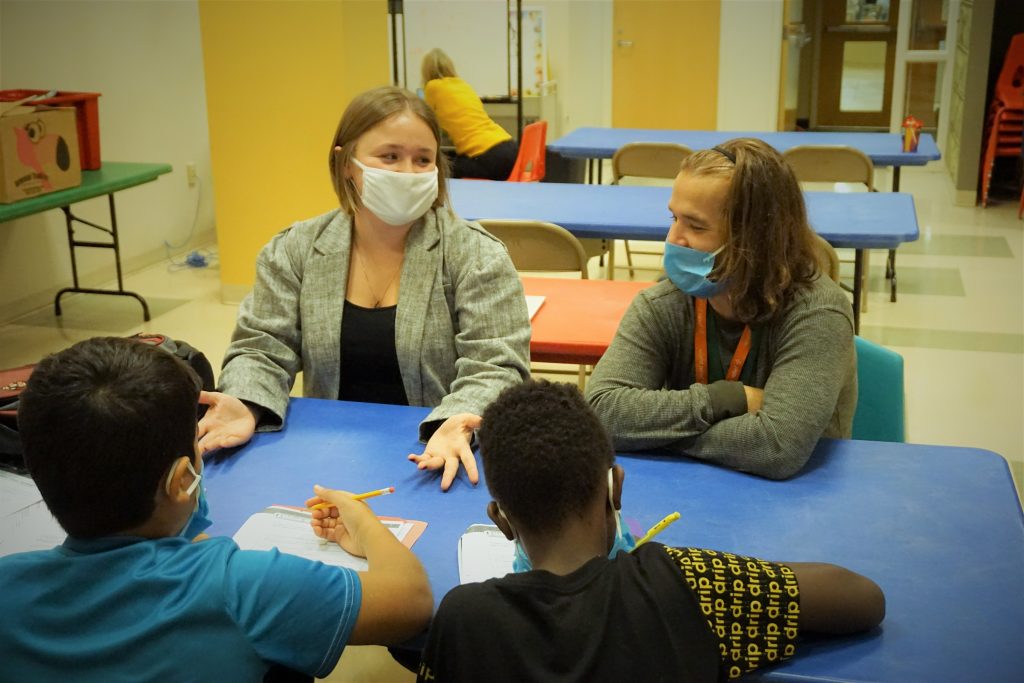
Kyle Bahm, Youth Mentoring Coordinator for World Relief Triad, says that Rowan Geukgeuzian, High Point University intern at the time, was able to assist Darelsalam where she needed it. “But Darelsalam doesn’t need much help,” Kyle says about Darelsalam. “She’s motivated. She can do things independently, so I just check in and ask if she needs help.”
Kyle speaks about the ease and comfort students like Darelsalam provide him in his work. “When someone is self-motivated, like Darelsalam, and they just need a little bit of guidance, it allows me to focus on others who may need a little more assistance,” he says. “It also encourages the younger siblings and sets an example. That helps me to challenge some of the other families’ oldest children to do the same for their peers and younger siblings.”
Darelsalam speaks of her siblings, and her entire family, as the source of her motivation. “My siblings help to motivate me, and my parents. They didn’t argue or try to change my mind. They are super supportive. I hope my siblings all can go to college as well.”
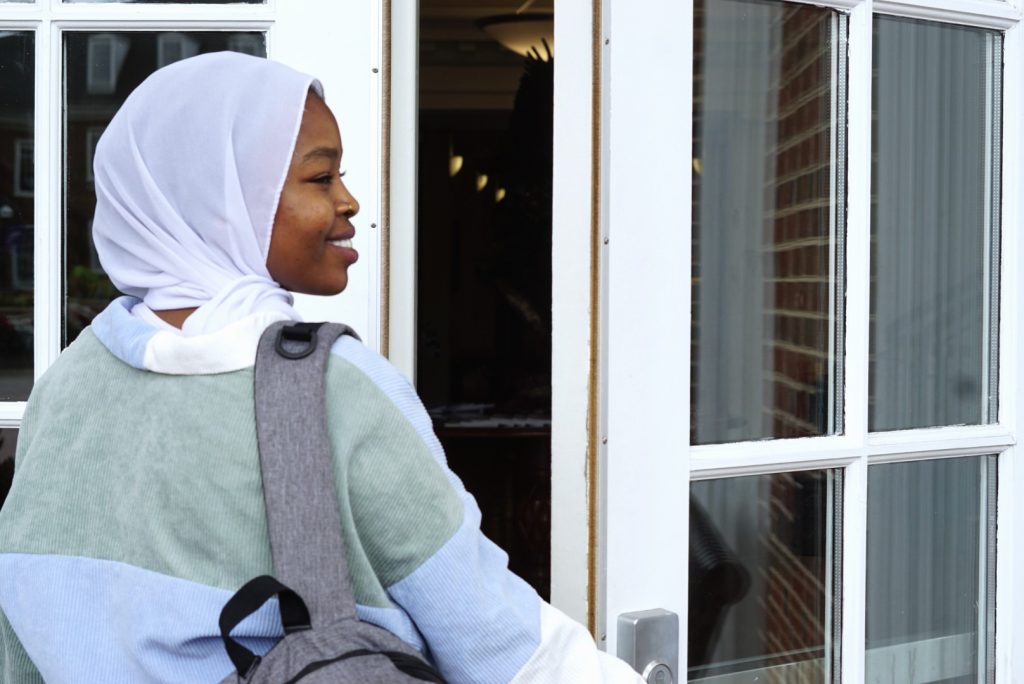
Darelsalam began her first semester at High Point University only a few weeks ago, now. Currently, she is enrolled as a biology major as she wants to become a family medicine doctor, and will be taking other foundational courses to improve her reading, writing, and time management skills. She is looking forward to working at the community clinic as a volunteer and Bonner Leader, a program at High Point University that “seeks to transform the lives of students as well as their campuses, local communities, and nation by providing access to education and opportunities to serve.”
“It’s really fun for the most part; though I’m learning how to balance my time with working and going to classes,” she says. “I volunteer eight to ten hours a week, but I can also put these hours on my resume, which is good.”
After sharing her journey from Sudan to North Carolina in her college application essay, Darelsalam continues to share her story as a way to possibly inspire those who came from similar situations such as herself. “I just wanted to show where I started, and what my struggles were,” she says. “I hope it encourages others who are in similar situations.”
You can help empower other individuals similar to Darelsalam today. Click the button below to learn more about how you can get involved with our Youth Mentoring Program at World Relief.
5 Times in U.S. History When Christians Advocated for Refugees and Immigrants
This year, the number of displaced people reached 100 million. That includes refugees, asylum seekers, and 53.2 million people displaced within their home country by conflict. And it’s a higher number than ever recorded in history.
In light of this, World Relief and other organizations have called for action – by the U.S. Government, community members, and the Church. Christian leaders are at the forefront of this advocacy, motivated by verses like Matthew 25:31-40.
“I was hungry and you gave me food, I was thirsty and you gave me drink, I was a stranger and you welcomed me.”
Matthew 25:31-40, in which Jesus tells His followers that caring for others is a way to serve Him directly.
A History of Welcoming the Stranger
The crisis may be greater than ever before, but throughout history, Christians have spoken up about immigrant and refugee needs.
In recent U.S. history, Christians have referenced Deuteronomy 24:14 as a moral reason to look out for the good of immigrants: “Do not take advantage of a hired worker who is poor and needy, whether that worker is a fellow Israelite or a foreigner residing in one of your towns.”
This Scripture has inspired countless people of faith to seek justice and care for immigrants navigating a foreign culture in the United States.
At times of prevalent anti-immigrant narratives, Christians have returned to the Bible’s command to care for immigrants and refugees. At times when the Church forgot its mandate, bold leaders reminded the Church of this biblical calling.
Here are 5 Times in History When Christians Led in Advocating for Immigrants and Refugees.
Advocating for Chinese Immigrants
In the 1840s and ‘50s, work in the California gold mines and garment factories, agricultural fields, and railroads drew thousands of Chinese immigrants to the U.S. West Coast. Eventually, more than 25,000 Chinese immigrants became the state’s largest non-white minority group. They formed vibrant communities in California. But despite being only .0002% of workers in the U.S., anti-Chinese sentiment began to grow, as white workers blamed them for taking jobs and depressing wages. Chinese immigrants faced growing discrimination, exclusion from community, and new anti-Chinese legislation. Eventually, the Chinese Exclusion Act of 1882 restricted Chinese people from migrating to the United States.
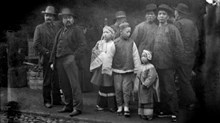
During this time, a Presbyterian pastor and missionary named William Speer became a vocal advocate for the fair treatment of Chinese immigrants. He used his relationships, knowledge of their language, and workforce data to argue against anti-Chinese legislation and even planted a Chinese Christian church in San Francisco in 1853. During his lifetime, he was vocal in opposition to racial prejudice and left a legacy of successors who contributed to fighting the racist anti-Chinese sentiment and joined with Chinese Christians to lead and channel Presbyterian support for the community.
Supporting Immigrants in the Community
At the turn of the 20th century, immigration to the U.S. ballooned. While conflicts and poverty pushed some immigrants to leave their home countries, the promise of jobs and economic opportunity drew others to the United States. Between 1880 and 1920, more than 20 million immigrants arrived – the majority from Southern, Eastern and Central Europe, including 4 million Italians and 2 million Jews. Unfortunately, many Protestants responded by working to restrict immigration and limit who could come to the United States (excluding Asians and other racial or ethnic groups) and promoting anti-Catholic messages and discrimination.

However, other Christians formed organizations and associations that helped immigrants integrate into the community. The YMCA in Cincinnati hosted the first known English as a Second Language (ESL) class in 1856 to help German immigrants gain language skill. Additionally, the YMCA served Asian communities in San Francisco. Then, in 1903, the YMCA created a specific department to work with industrial workers and immigrants, a legacy continued through to the YMCA’s present day adult education classes, refugee services, and New American Welcome Centers.
Welcoming World War II Survivors
By the end of the catastrophic World War II, millions of people were displaced throughout Europe or within their home countries. Many returned to their countries of origin within a few months of the war’s end. But for others, their home countries were irrevocably changed or unwelcoming. Among these were Jewish Holocaust survivors, many of whom spent years living in displaced persons camps alongside imprisoned Nazi perpetrators.
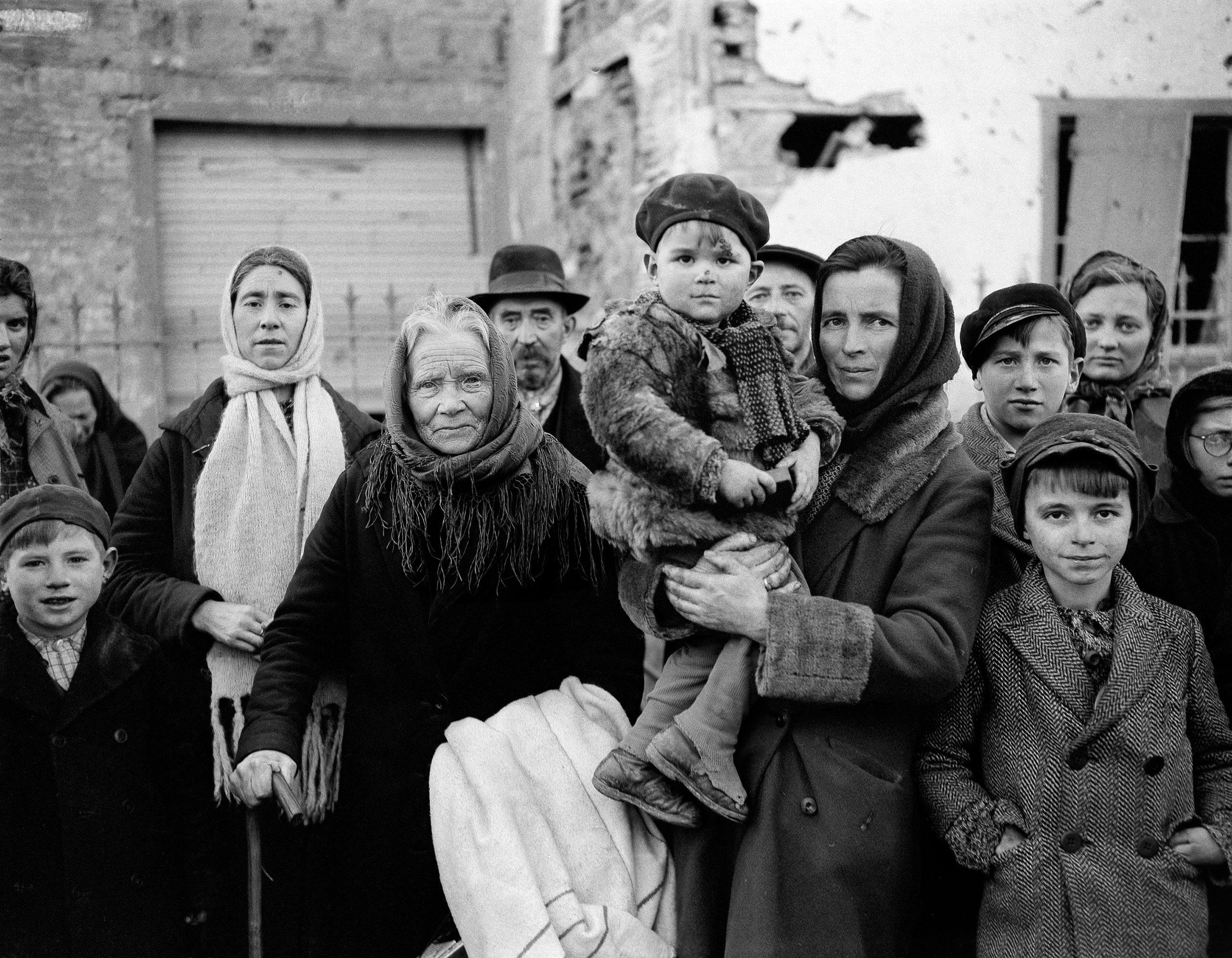
During this displacement, Catholic and Protestant congregations organized to respond. Christians joined with U.S. policymakers to convince American citizens to sponsor refugees. And while the U.S. Government created new resettlement legislation, Christian agencies and churches planned and implemented resettlement efforts, while also advocating before the government. In 1948, the United States passed the country’s first refugee and resettlement law. As a result, the government and Christian agencies partnered to help displaced Europeans seeking permanent residence in the United States after World War II. And to welcome the newcomers into community life.
Responding to Vietnamese Refugees
In 1965, the Immigration and Nationality Act fundamentally changed the American immigration system. Specifically, it removed quotes from the 1920s that had favored racial and ethnic groups over others and limited immigration from specific countries. The Act replaced them with a preference system that emphasized family reunification and skilled immigrants. In the next five years, immigration from countries torn by conflict, such as Cambodia and Vietnam, quadrupled. During this time, particularly from the 1950s until 1980, the U.S. Government’s refugee resettlement program was inconsistent, and the U.S. did not invest in refugee assistance. However, churches and faith-based organizations stepped up to fill in the gaps and help refugees get their footing.
Sometimes, this was done reluctantly. After two decades of conflict in Vietnam ended in 1975, 2 million Vietnamese people had been killed, 3 million were wounded, and 12 million had become refugees. In response, a woman named Evelyn Mangham emerged to call the Church to welcome Vietnamese refugees. With 20 years of experience as a missionary, Evelyn Mangham cold-called churches. She quoted the Bible. And she told stories. Because of her commitment to the Church and Scripture, she worked tirelessly to convince churches to sponsor refugees from Vietnam.
In the span of a year, she had convinced churches to sponsor 10,000 refugees from Vietnam, Laos, and Cambodia.
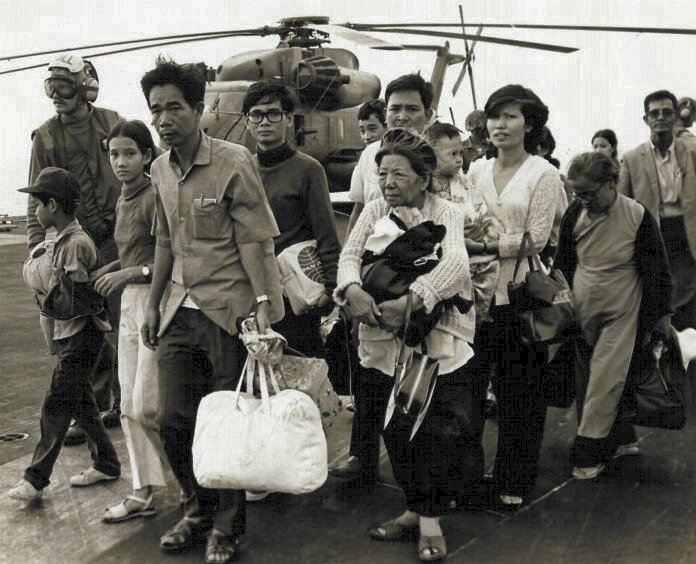
Founding World Relief
Ultimately, Evelyn Mangham went on to found World Relief’s refugee resettlement program alongside her husband, Thomas Grady Mangham, Jr.
We can thank this woman’s tenacity and conviction for World Relief’s 40-year history of refugee resettlement. And the impact continues today! All because Evelyn Mangham read Scripture and responded, believing that the Church must welcome the stranger.
“Her impact on the lives of those who are vulnerable will be felt for generations to come… I know there was a huge celebration for her in heaven as so many people whose lives she touched welcomed her to her eternal home.”
Jenny Yang, World Relief’s VP of Advocacy
Providing Safe Haven for Asylum Seekers
In the 1980s, nearly a million people fled Central American countries, crossing the U.S. border to seek asylum. Civil war and violence pushed people to leave home in El Salvador and Guatemala to seek safety. Yet a tiny fraction of those who crossed Mexico to the southwestern United States were approved for asylum.
The change came when Christians, alongside Jewish and other faith leaders, advocated on behalf of these migrants. The Sanctuary Movement began in 1980 with a goal: to provide shelters to Central American refugees fleeing civil wars. For instance, churches provided English lessons, basic humanitarian help, and legal aid through immigration attorneys. Additionally, leaders preached sermons, organized protests, and advocated to the government on behalf of the asylum seekers. And hundreds of religious communities provided sanctuary, usually inside houses of worship.
At its height, the movement grew to include more than 500 congregations.

Consequently, the Sanctuary Movement was successfully pushing the Reagan administration to pass the Immigration Reform and Control Act of 1986. This landmark piece of legislation extended temporary worker visa programs and helped 3 million people gain legal status.
Recent History
Today, there are nine agencies that work with the U.S. Government to resettle refugees. World Relief is one of them, along with five other faith-based organizations. One is Jewish, one is Catholic, and three others are Protestant. World Relief invites churches and Christians as a whole to welcome refugees and serve immigrants in the community – regardless of the religion, ethnicity, or country of origin of the newcomers.
As these five examples show, Christians have often been on the front lines of serving immigrants and refugees. Together, they have shaped history and the future of the country. Through action in faith, the Church has moved.
Today, Christians have another opportunity to act. And it’s at a pivotal time. Just like Christians throughout U.S. history, those who join World Relief are motivated by faith. And like Christians in the past, we have a calling. In response to a crisis, we can move together. Because of our faith and in light of the need, we can love our neighbors as Christ loves us.
And we can welcome the stranger.
Our view: Welcoming the stranger
Rob Cassell, World Relief Triad Executive Director, Graham Aitken, pastor of the Heart in Boone, Adam Clark, World Relief Durham’s Executive Director, and the Evangelical Immigration Table come together to discuss the prevalent need for immigration reform and providing a path towards legal citizenship for immigrants facing impermanence in this opinion piece.
A letter soliciting support from members of Congress — including our own Sens. Richard Burr and Thom Tillis — will, we hope, be influential. Its cause is compassionate and just.
The letter, signed by more than 70 evangelical pastors, leaders and church members — participants in the Evangelical Immigration Table — urges our legislators to provide permanent legal status to Afghans who are already resettled across the U.S. after fleeing from the nightmare of Afghanistan’s final days as a democracy in August 2021.
These are the people, and their family members, who assisted the U.S. military and other Americans during our long and, in the end, tragic foray into Afghanistan, only to have to abandon their homes and rush to safety here after civilized allies left and the Taliban resurged.
Work at World Relief
For many of us, the last few years have been characterized by a deep sense of chaos, uncertainty and injustice. As suffering across the globe appears to be worsening, you’ve likely asked yourself, how can I respond in a meaningful way?
You’ve likely thought about your career path and wondered how you can make an impact in the face of the increasing suffering and injustice we see in this world every day.
Perhaps you’re wondering whether what you do really matters, or if your work is contributing to this world in a positive way.
Maybe you love what you do, but a new, or renewed, sense of purpose is calling you to a different space — one in which you can grow your talents while also standing up for the rights of the vulnerable and speaking out with the marginalized, exploited and forgotten.
Or perhaps you’re at a crossroads, challenging yourself to take a leap into the unknown, uncertain but driven above all else by a missional heart and desire to put your faith into action.
If this sounds like you, World Relief, and millions of people around the globe, need you.
World Relief is a global Christian humanitarian organization that is fighting for change that lasts, right here in the U.S. and across the globe. We bring sustainable solutions to the world’s greatest problems — from disasters to extreme poverty, violence, oppression, mass displacement and immigration.
For over 75 years, we’ve partnered with churches and communities in more than 100 countries to bring hope, healing and transformation to the most vulnerable. At this pivotal moment in time, World Relief is rapidly expanding and growing our team to meet the increasing needs of our world, and we want you to join us!
- A strong sense of everyday purpose and impact as you witness lives transformed daily and hear incredible stories of hope from around the world.
- We’ve been living in a season where the problems in the news have caused many people I know to become discouraged, even despondent. But in our work, we get to witness good-news stories every day. We get to witness the ways that churches and communities are working together to bring hope and healing in places all around this country and across the globe.
Even in the bleakest circumstances, there are stories of God’s love in action through the staff, volunteers and financial partners of World Relief. I love the feeling that I work at a place where what I do truly matters; my work truly makes a positive change in the lives of hurting people. – Kimberly Hurst, Strategic Partnerships Director, Northwest.
- We’ve been living in a season where the problems in the news have caused many people I know to become discouraged, even despondent. But in our work, we get to witness good-news stories every day. We get to witness the ways that churches and communities are working together to bring hope and healing in places all around this country and across the globe.
- A highly relational and collaborative environment, surrounded by colleagues to learn from, be inspired by and foster friendships with.
- “This organization is just packed full of goodness. Each day I am surrounded by women and men with huge hearts, deep integrity and a deep thoughtfulness and intentionality that makes working alongside them a true joy. World Relief is very much a people-first environment and I have been incredibly blessed by that stance both personally and professionally.” – Francesca Albano, Sr. Dr. of Brand & Marketing
- A commitment to best practices and excellence in our work, as well as the ability to think creatively and bring new solutions to complex problems.
- I’ve found that World Relief’s collective passion extends beyond the local church and vulnerable newcomers whom we serve in the U.S. We’re passionate about who we are becoming, individually and as an organization. As we’re beginning to operationalize that passion, I think now is an excellent time and opportunity to step into this journey and behold God’s steady hand in shaping and revealing, with authentic diversity, this branch of his beloved family. – Travis Barnwell, MSW, Director of Case Management Services
- A thoughtful, faithful commitment to God’s leading through work grounded in prayer, spiritual discussion and obedient improvisation, as well as opportunities to develop and grow your individual faith.
- “Since working at World Relief, my relationships with God, with myself, with my family and others have been transformed beyond belief. Areas of my life which I struggled with in the past have been restored… I know who I am… all the assets in the world cannot compensate for such newly built confidence in myself and in Our Loving Father.” – Esther Pyram, Integral Mission and Church Empowerment Zone Manager, Haiti
If you’re one of the many people feeling like you need to do more for our broken world, here’s your chance. In the midst of the chaos, there is still hope — God has a plan and you can be a part of it. We are looking for people just like you who want to use their gifts and talents to make a real and tangible difference in our world and the lives of the suffering.
Will you apply to work at World Relief today?
Your Family is Coming: The Long Road to Reunion for Refugees
Everyday, people like Ibrahim make the painful decision to leave their homes due to persecution, conflict, violence, human rights violations and climate-related factors. Their journeys are often marked by loss, separation and worry for those left behind.
For ten years, Ibrahim carried the weight of being separated from his family. This is his story of enduring hope.
An Impossible Decision
Ibrahim was born and raised in the Darfur region of western Sudan. He worked various jobs — housekeeping, construction, office administration — to provide for his family. He was married with three children and a fourth on the way.
While Ibrahim loved his home and community, the civil conflict left him feeling uneasy and concerned for his family’s safety.
For decades, Darfur has been embroiled in a conflict fueled by ethnic disputes and limited resources. In 2003, a rebel group launched an insurrection in Darfur, protesting what they believed was the Sudanese government’s disregard for non-Arab ethnic groups in the region. In response, the government armed ethnically Arab militias to combat rebels in Darfur.
Despite international attempts at peacebuilding and intervention, the conflict worsened. Militias threatened the lives and livelihoods of non-Arab civilians, burned down thousands of villages, committed sexual violence and blocked aid organizations from delivering much-needed food and medical supplies.
In 2013, as a renewed wave of violence gripped the region, Ibrahim made the heart-wrenching decision to flee Sudan, leaving behind his wife and children, hoping to find help.
“There was too much killing, too much fighting,” he said. “It was impossible to live.”
Seeking Safety
Ibrahim arrived in Jordan, where he had heard help was available. He registered with the U.N. High Commissioner for Refugees (UNHCR), meticulously completing his paperwork.
“I always wrote my kids’ names as my family on all the papers — all the dates of birth and everything,” Ibrahim said. He wanted to make sure records of his wife and children, still in Sudan, were included in his case so that they too would be resettled in a new country with him.
Ibrahim found work, sent money home to his family and waited.
Two years went by until one day, Ibrahim learned that his case had been approved for resettlement in the U.S. He passed all required security and health screenings, but because his family was still in Sudan, they could not travel with him.
With help from the International Organization for Migration (IOM), Ibrahim flew to the U.S. in 2016, where World Relief Triad welcomed him to North Carolina.
Ibrahim remembers feeling like he had escaped death.
“When I arrived, I was so grateful for World Relief because they helped me with everything,” Ibrahim said. “They helped me with a place to stay. They were able to find work for me, and they helped until I felt that I could do things for myself.”
And yet, as Ibrahim rebuilt his life in the U.S., he never stopped thinking of his wife and children, still stuck in Sudan. They frequently spoke over the phone — and Ibrahim continued to hope.
“I couldn’t really rest or enjoy all the blessings I had because I kept on thinking about them all the time,” Ibrahim said. “I never felt complete.”
Hoping and Waiting
Now in the U.S., Ibrahim continued working with IOM in the hopes of bringing his family to North Carolina. He was persistent, calling for updates whenever he could.
With IOM’s help, he was eventually able to secure interviews for his wife at the U.S. embassy in Khartoum, the capital of Sudan. Still, the process crept forward slowly.
Then, in 2019, just when everything finally looked ready to move forward, Ibrahim encountered another obstacle — the president of the United States announced a new executive order banning Sudanese people from traveling to the U.S., Ibrahim’s family included.
Ibrahim remembers being told, “Everything is correct; all the papers are the way they’re supposed to be. There are just some rules that they’re not allowing people.”
He began to doubt whether he would ever see his wife and children again. “I almost lost hope,” he said.
But then, in 2021, he got a call. A new U.S. presidential administration had reversed the executive order. Over the phone, he heard the long-hoped-for words: “Your family is coming.”
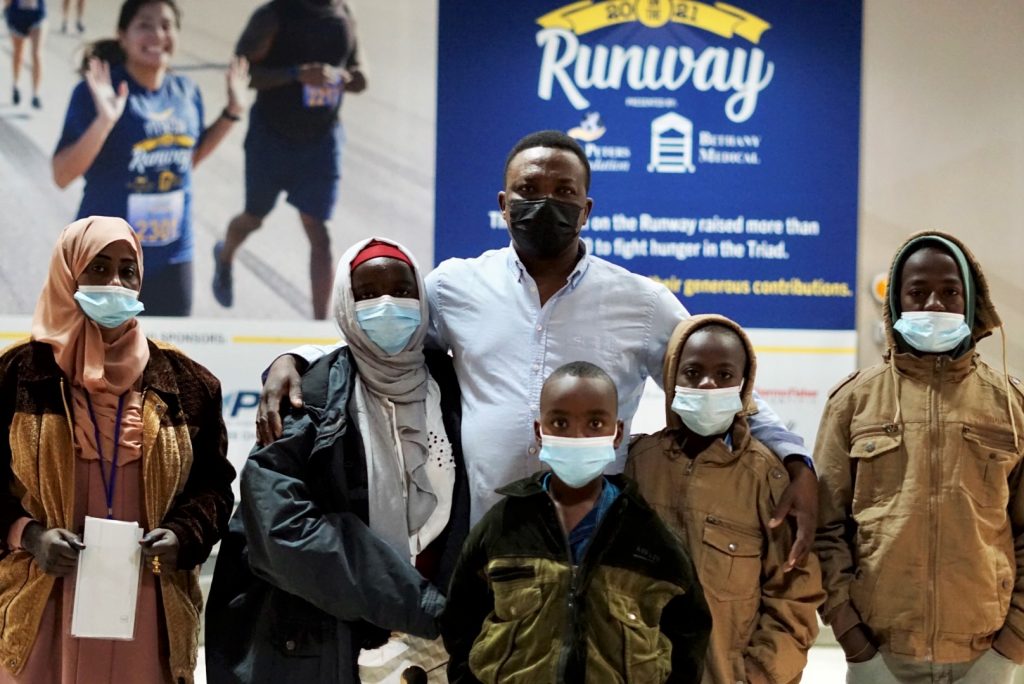
Ten years after Ibrahim had to leave his family behind in search of safety, after years of hoping and waiting, they would be reunited at last.
Reunited
In February 2022, Ibrahim gathered with staff from World Relief Triad at the airport to welcome his wife and four children to North Carolina.
“I broke down in tears because I hadn’t seen them in 10 years, and now they’re here, and it’s real,” Ibrahim said.
“The little one that I left was only three months; when he came, he was 10 years old. I cannot describe how I felt because I never thought — I was at the point of thinking maybe I will never see them again.”
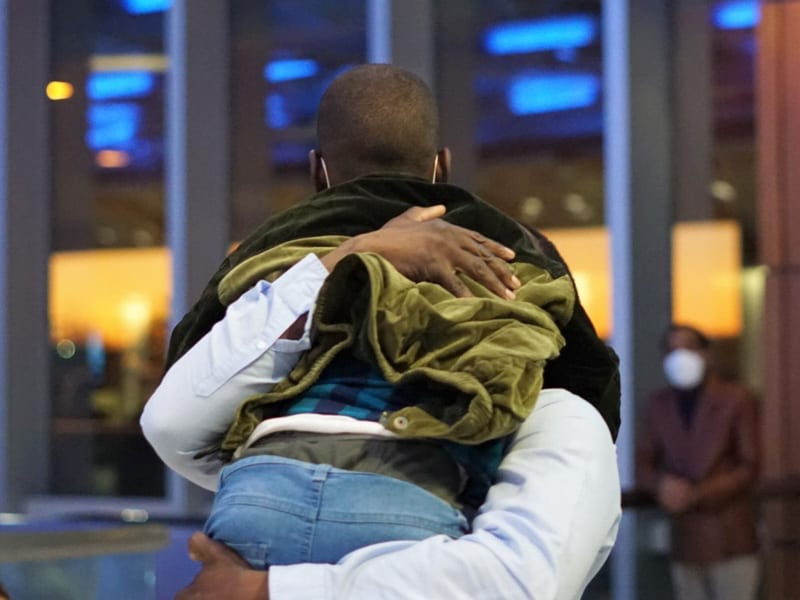
Now, with his family finally together again, Ibrahim has new hopes.
“My hopes are for my kids,” he said. “For them to get the right education, for them to be good people. I want them to make something for themselves and make me proud… for them to benefit themselves and our new country — the United States.”
Remembering Those Left Behind
Even as Ibrahim and his family continue building their new life together in the U.S., Darfur and the family, friends, and neighbors they had to leave behind are never far from his mind.
“People are really suffering there. They don’t have food, they don’t have water, they live in very unsafe, unhealthy conditions,” he said.
The UN estimates that 2.5 million people are living in displacement camps across Darfur, and 6.2 million people will need humanitarian assistance in the region within the next year. The same factors — war, violence, and persecution — that drove Ibrahim and his family from their home still impact people in Sudan today.
At World Relief, we recognize that addressing the drivers of mass displacement requires a multi-faceted and holistic response. In Sudan, World Relief is on the ground providing humanitarian assistance and investing in development and peacebuilding efforts to address the underlying factors contributing to conflict and displacement.
Building a just world means coming alongside families like Ibrahim’s once they’ve reached the U.S. and it means finding lasting solutions to the problems that force families to flee in the first place.
For Ibrahim, his hope for safety and brighter futures for those still in Darfur endures — “I really would like for them to… have a better life for themselves and for their kids.”
Together, we are taking action, hoping and praying for lasting solutions for displaced and separated families like Ibrahim’s both in the U.S. and in countries around the world.
Across the U.S., local World Relief offices rely on partners and volunteers like you to help build welcoming communities. Join them on the path to hope, transformation, and lasting change alongside refugees and immigrants like Ibrahim.

Kelly Hill serves as a Content Writer at World Relief. She previously served as Volunteer Services Manager at World Relief Triad in North Carolina before moving to Salt Lake City. With a background in International and Intercultural Communication, she is passionate about the power of story to connect people of diverse experiences.
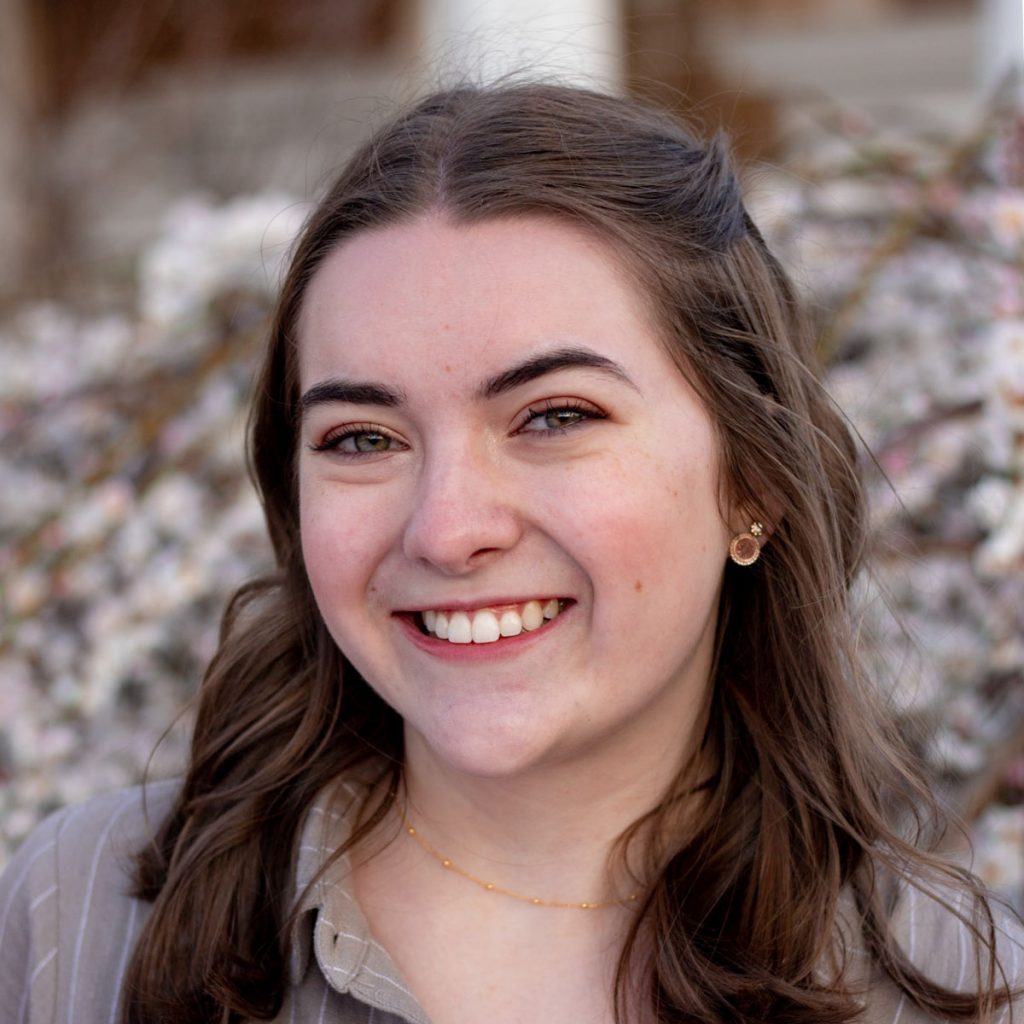
Abby Ray has been serving as the Communications & Advocacy Coordinator at World Relief’s Triad office since September 2021. She works to amplify the voices of clients, staff, and community members by empowering them to share their own stories.
From Volunteers to Friends through Welcome
Volunteers Nancy Montgomery and Peter Jennings share their journeys as active World Relief Triad partners working to build relationships with Afghan immigrants through producing a message of holistic, sustainable change and welcome to their community.
The Journey to Volunteering
For Good Neighbor Team members Nancy Montgomery and Peter Jennings, they can trace their desire to serve refugees and immigrants to before their time at World Relief. Nancy says that her first experience was working with Syrian refugees in Athens, Greece in 2017. “That was my first experience with any type of work with refugees,” she says. From there, her curiosity was sparked when she came back home. “ I had already done the training a few years ago, so I signed up willingly to welcome a new Afghan couple in 2021,” Nancy says. By February 2022, Nancy’s “Good Neighbor Team” of St. Paul’s Episcopal Church had their first dinner meeting with their new friends: the Rahmani’s.
Peter Jennings’ journey dates back a little further than Nancy’s. Born into an American family living in Germany, Peter was able to see through his own parents how love and compassion can transcend cultures and nationalities. When his parents decided to show kindness to a begging woman by providing her a job and a place to stay, Peter used his witness of his parents’ generosity as motivation for serving others.
“The kindness that I saw in my parents to people that you wouldn’t expect–She was German, and we were friends with her right after the war!– That always followed me,” Peter says. “As I moved from country to country with my parents, so many different people welcomed us into their homes. I think we should do the same for refugees and immigrants here.” After Peter applied to partner with World Relief Triad through volunteering in 2016, he decided to reach back out in 2021. He was soon paired with a man who had recently arrived from Afghanistan by the name of Sultani Fraidon.
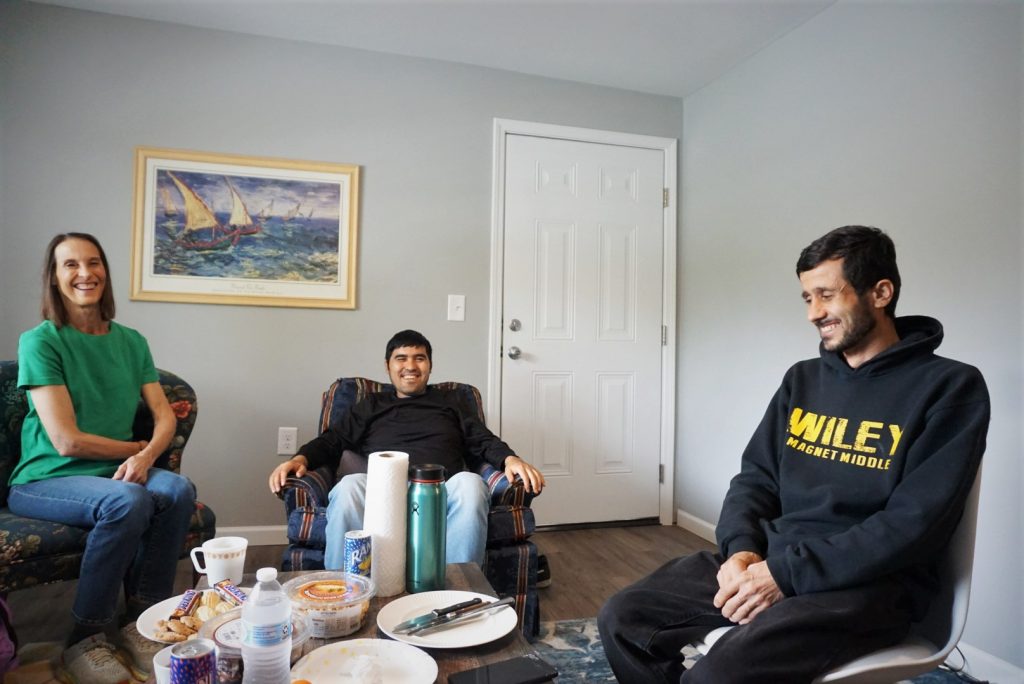
“Sultani didn’t speak any English, and I didn’t speak any Dari. I had an app that was in Persian, but he couldn’t read or understand Persian,” he says. Peter realized that if he wanted to communicate with his new friend, he would need to connect with one of Sultani’s friends who could help interpret. It just so happened that Ali Rahmani, who lived one floor above Sultani and had recently been connected with Nancy Montgomery, spoke both English and Dari.
Holistic Change & Integration
Both Peter and Nancy quickly point out their service to Sultani and the Rahmani’s as based in friendship.
“From the beginning, we’ve learned that it’s about relationships,” Nancy says. “They’re so gracious in always inviting us to stay, eat, and visit.” When asked what her favorite part about volunteering is, she states that losing track of time is one of her favorite parts.
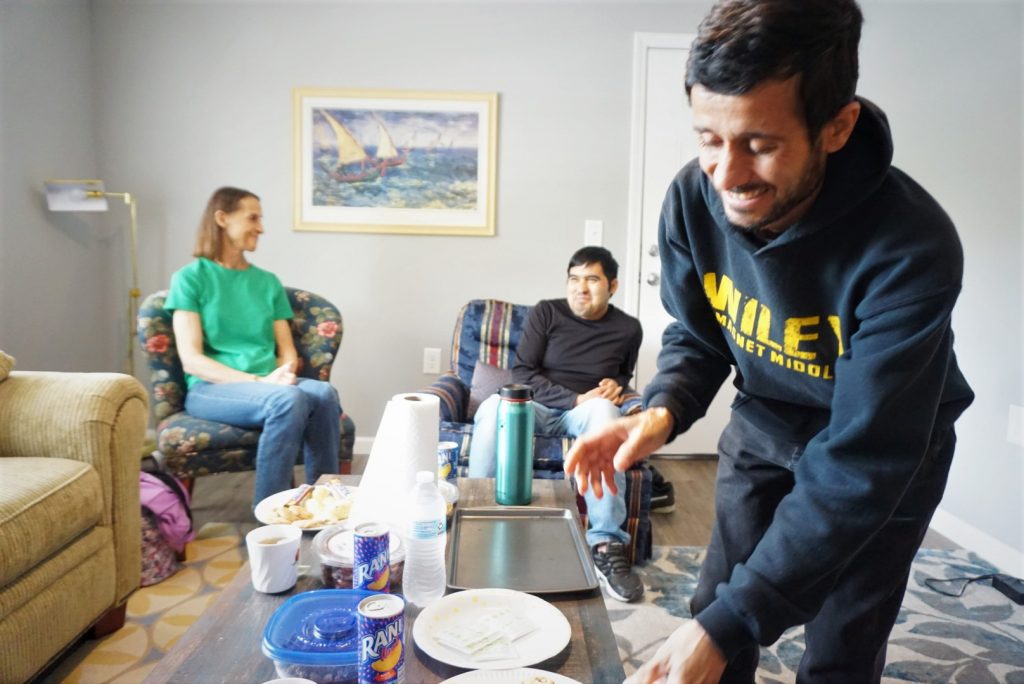
“Something that I think is going to take one hour may take closer to three or four,” she says. “When I’m with them, I want to be very present. I like the fact that I don’t know what’s going to happen. It’s taught me not to focus as much on my American obsession with my schedule.” There’s also an acknowledgment of the importance of asking lots of questions. The volunteer says that while her new friends ask a lot of questions, she also wants to ask them questions and learn about them. “We see how similar we are as human beings,” she says. She uses the example of talking to Ali’s wife about her daughter and what it’s like to be a mom as a common experience.
“We’ve learned overall, though, that it’s about relationships and not just ‘doing things’ for them,” Nancy states.
Nancy highlights hers, Peter’s, and the rest of the Good Neighbor Team’s focus on independence as a way they help bring their new friends sustainable integration. “Peter taught Sultani and Ali how to ride public transportation and acquired 30-day bus passes for both of them to use going to work and their ESL classes,” she says. “He is also already helping Ali complete the written exam for his driving test. We’re trying to think past the immediate need and focus on what it’s going to take long-term.”
The Community‘s Response as a Place of Welcome
Nancy believes that though the issue is very timely, people would still be moved to get involved. “I think people have an innate interest in serving people who come here at times with just the shirt on their backs.”
Peter can testify to that as he tells the story of how one message to his next-door neighbors on an app received over 194 responses. “I wanted to see if we could get a couple of TVs for these two Afghan families so that they could learn English,” he says. “With 194 responses and only one negative response, I was stunned.”
“Since I have been a volunteer for World Relief, I have met and learned of a lot of unselfish acts of kindness in this community.”
-Peter jennings, volunteer
But perhaps the most amazing moment of welcome from the community happened one day when a couple of the Good Neighbor Team members decided to take Sultani to a local restaurant in Winston-Salem for lunch. With Sultani being a cook, he was excited to hear about the potential job opportunity at the restaurant but was worried about his lack of English. But after the manager of the restaurant reassured him that it would not be a problem, the volunteers left with hope. When Peter returned to the restaurant with Ali’s wife and Sultani later, he had no idea that yet even more generosity and service were about to be provided to them.
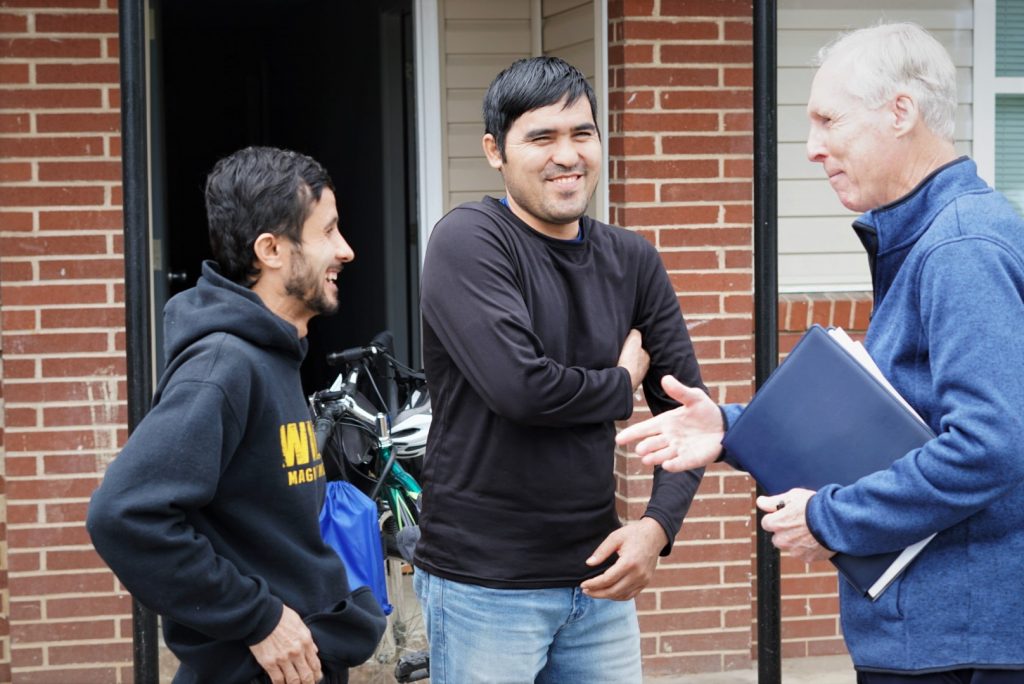
“After I helped Sultani fill out the application and we took it over to the restaurant, we met the owner, Ari Ziogas, who began to answer all of our questions and told us his job would include benefits,” Peter says. “Another day soon after that, I was there with Ali’s wife and Sultani again, and an older gentleman came over to give me a $100 bill to give to Ali’s wife.”
“It turns out it was Bob Ziogas, the father of Ari! He told us that, forty years ago he had a similar experience coming from Greece to the U.S.,” says Peter. “What a heartfelt story for him to tell about his life and really have an understanding of what these people are going through. To me, it completes the circle. I was thrilled to see that Sultani was hired, and then to have Ari’s father come out and give the money to Freshta was so encouraging.”
Peter and Nancy both express a desire to see Sultani, Ali, and their families thrive in the United States as the motivation for their service. By helping the community to see their new friends as highly-contributing members of their society and people who have stories and the potential to become close friends, they are bringing true change together.
“To see them getting stronger with every encounter is encouraging,” Nancy says. “The more comfortable they become with us and as the relationship grows, I just see that resilience growing. I think it’s giving them hope that they have friends and a community and they can do this.”
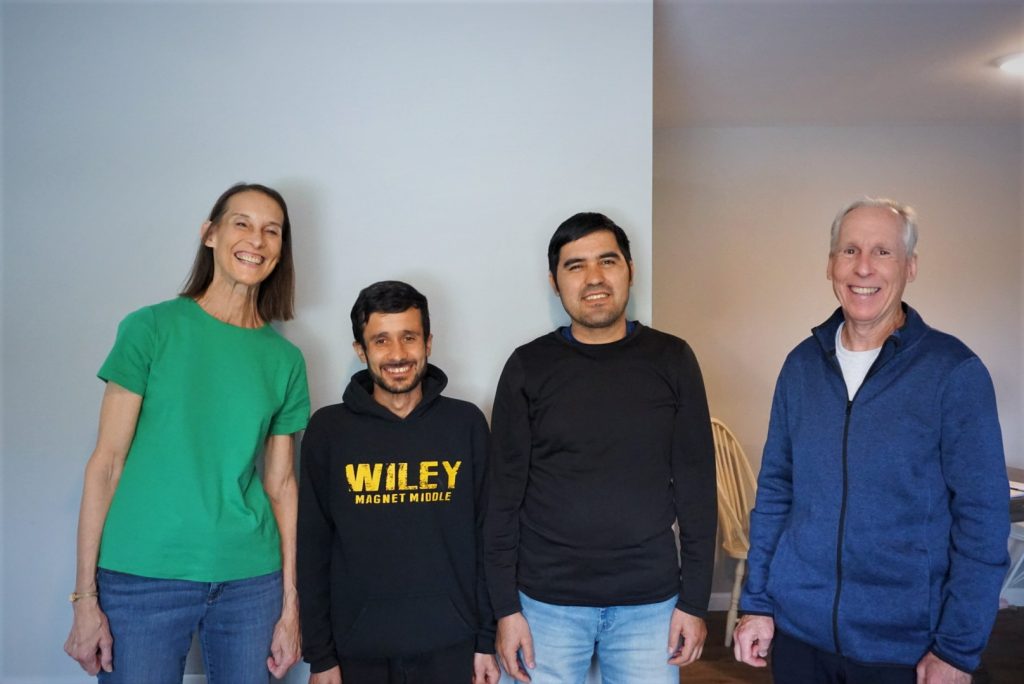
Want to help bring hope and change to the lives of immigrants? Click the button below to learn more about how you can volunteer with us.
World Relief Welcomes Announcement of Ukrainian Refugee Resettlement and Humanitarian Assistance, Urges Broader Welcome
March 24, 2022
CONTACT:
Audrey Garden
audrey.garden@pinkston.co
571-405-1606
BALTIMORE – Today, President Biden announced a plan to admit as many as 100,000 Ukrainians to the United States as refugees and through other means. In addition, the United States is committing to provide more than $1 billion in new funding towards humanitarian assistance for those affected by Russia’s war in Ukraine and its impacts around the world. World Relief welcomes this announcement of additional humanitarian aid and is eager to welcome more Ukrainians to the United States, while also insisting that the U.S. should also welcome a larger number of refugees fleeing other conflicts globally.
“Prior to the Russian invasion last month, World Relief had already resettled more than 7,300 Ukrainians in the past decade, roughly 40 percent of all Ukrainians admitted to the U.S. as refugees during that time,” observed Myal Greene, president and CEO of World Relief. “We are in close contact with many of these individuals, almost all of whom have loved ones now at risk in Ukraine, and we’re grateful that President Biden’s announcement today seems to open up the likelihood of expedited family reunification and other avenues of protection. We are ready to welcome them, in partnership with local churches and other community partners.”
World Relief is also actively responding to the crisis in Europe, working with local churches and other partners both in Western Ukraine and in Slovakia, Romania, Moldova, Poland, and Hungary to provide immediate humanitarian assistance to Ukrainians who were forced to flee to neighboring countries or are in need of immediate assistance in Ukraine.
“The additional funding provided by the United States will help meet the immediate humanitarian needs of vulnerable Ukrainians who are bearing the brunt of war. We urge the international community to continue to provide humanitarian assistance as generously as possible to vulnerable Ukrainians and ensure there can be humanitarian corridors for civilians to be able to safely leave Ukraine or for aid to reach those trapped inside Ukraine,” said Myal Greene. “Most Ukrainians who make the difficult decision to leave their homes are relatively safe in neighboring European countries, where most would prefer to stay, in part because they hope and pray to return soon to a safe, free Ukraine. But for those who have family in the U.S. or for whom voluntary repatriation is impossible, some may prefer the option of resettlement to the U.S., where we are also eager to welcome and support them as they replant their lives. A multi-pronged approach to this crisis, exploring every pathway of protection for those who can resettle to the United States, while also continuing to support Ukrainians who remain in the region, will be critical as the humanitarian needs climb in the months ahead.”
While pleased with the U.S. government’s intention to welcome a large number of Ukrainian refugees, World Relief is also concerned about refugees who have fled other conflicts. “The Russian invasion of Ukraine is just the latest in a series of wars and conflicts that have fueled the greatest global refugee crisis since at least World War II,” noted Jenny Yang, senior vice president of advocacy and policy for World Relief. “The Biden administration must rebuild the U.S. refugee resettlement program not only for Ukrainians, but also for those who have fled similar conflicts that have garnered less media attention or been largely forgotten in the U.S. — even though the conflicts continue and refugees remain in desperate conditions in neighboring countries for years and sometimes for decades.”
World Relief celebrated the president’s decision last fall to raise the annual ceiling for refugee admissions to 125,000, the highest level in decades. But it has become clear that, without dramatic U.S. government efforts to increase the pace and scale of overseas processing as well as sustained investments in the domestic resettlement infrastructure, the U.S. will resettle, at most, a small fraction of that goal this year. Five months into the federal fiscal year, the U.S. has admitted just 6,494 refugees, which does not include Afghans resettled through a separate process.
“We need to rebuild a robust, nimble resettlement process that can welcome the persecuted from various parts of the world, with a particular concern for those most vulnerable, who may have no safe neighboring country to which to flee. And we must also ensure our asylum laws offer protections to those of any nationality who reach the U.S. and can demonstrate a credible fear of persecution, rights that the Biden administration is currently denying to many who are not Ukrainian under the pretext of the COVID-19 pandemic,” said Yang.
As the president travels to Europe, World Relief urges the president to encourage and support Poland and neighboring countries to continue their welcome of Ukrainian and other refugees. World Relief also urges the international community to stand in solidarity with the Ukrainian people by providing ongoing humanitarian assistance and facilitating diplomatic solutions to resolve the conflict.
“We hope and pray that the Ukrainian people will know peace and security in the near future. And we call upon the global church to support the Ukrainian people, and others experiencing conflict, as robustly as possible,” said Myal Greene.
Individuals interested in supporting World Relief’s humanitarian response in and around Ukraine can find more information at worldrelief.org/respond, while those interested in supporting resettlement efforts within the U.S. can find a list of World Relief resettlement locations at worldrelief.org/us-locations.
To download a PDF version of this press release, click here.
About World Relief
World Relief is a global Christian humanitarian organization that brings sustainable solutions to the world’s greatest problems — disasters, extreme poverty, violence, oppression, and mass displacement. For over 75 years, we’ve partnered with churches and community leaders in the U.S. and abroad to bring hope, healing and transformation to the most vulnerable. Learn more at worldrelief.org.
Community Partner Highlight: How a High-Schooler Mobilized Her Church to Donate 1,600 Pounds of Food
When assigned a year-long research project for her senior year of high school, Kamree Anderson knew exactly what topic to choose. What she didn’t know is that she would use this project to inspire long-term change.
Where It All Began
Senior Kamree knew for the subject of her final, ~15-page paper, she would have to choose a subject that was relevant to her community and involved her passions. “I’m super passionate about dietetics, nutrition, and generally how food works within the body,” Kamree says. “I knew the topic had to be on an issue in the community, though. I’d need to find a population in the area that this topic applies to.” With some further preliminary research, Kamree came to learn that the crisis level of malnutrition in refugees internationally stays high. She began to reach out to organizations locally that worked with refugees at that point.
The challenge lay in finding other organizations that are able to take food donations. It was her mom, Starr Anderson, who had recently worked with World Relief Triad, that suggested they call to find out if organizing a food drive to donate to the office would be possible. “I had contacted World Relief in the fall to find out what needs we could assist with,” Starr says. “ I put together a group of families from our congregation that could help with organizing the warehouse one Saturday in January of this year. At the same time, Kamree was working on her senior project.”
Kamree knew that the items would need to be specific in order to meet the needs of different diets based on culture, nationality, and religion, so after receiving a list from the office, she got to work.
Engaging the Community
From there, it was up to the high schooler to create excitement, involvement, and engagement. She decided to mobilize the congregation of her church, The Church of Jesus Christ of Latter Day Saints, in a church-wide food drive. She specifically chose to focus on her peers in her youth group.
“As part of the drive at my church, I made it a competition between different ages in the group to create excitement,” Kamree says. “Whoever brought the most food got to pie some of their friends in the face.” Her parents laugh at the “prize” for this project. They’re also quick to point out the impact of the illustration that their daughter used to also educate her peers through. This activity served as a way to visually represent the privilege that the U.S. possesses.
“I think in the U.S., we don’t always realize how blessed we are with resources,” Kamree says. By taping off certain-sized squares on the ground of where her youth group gathers, she showed the vast difference of square footage per household in other countries. “I was inspired to do the activity by a former teacher in middle school who did something similar. I remembered how much it impacted me.” After dividing the students up into each square based on room per capita, she also gave out a certain amount of cookies to each country to represent the amount of food that each country receives to really demonstrate the crisis.
When asked what was the largest takeaway from the process, Kamree speaks on the impact of being able to share her research with peers as a point of interest. “Personally, I knew a lot about dietetics before. But going through this project and specifically researching how it affects refugees and explaining it to my peers sparked a lot of interest in me,” she says.
“I want to keep helping people learn about it. Now, I also want to work in a refugee crisis center or something similar when I’m older.”
Setting an Example Across Generations
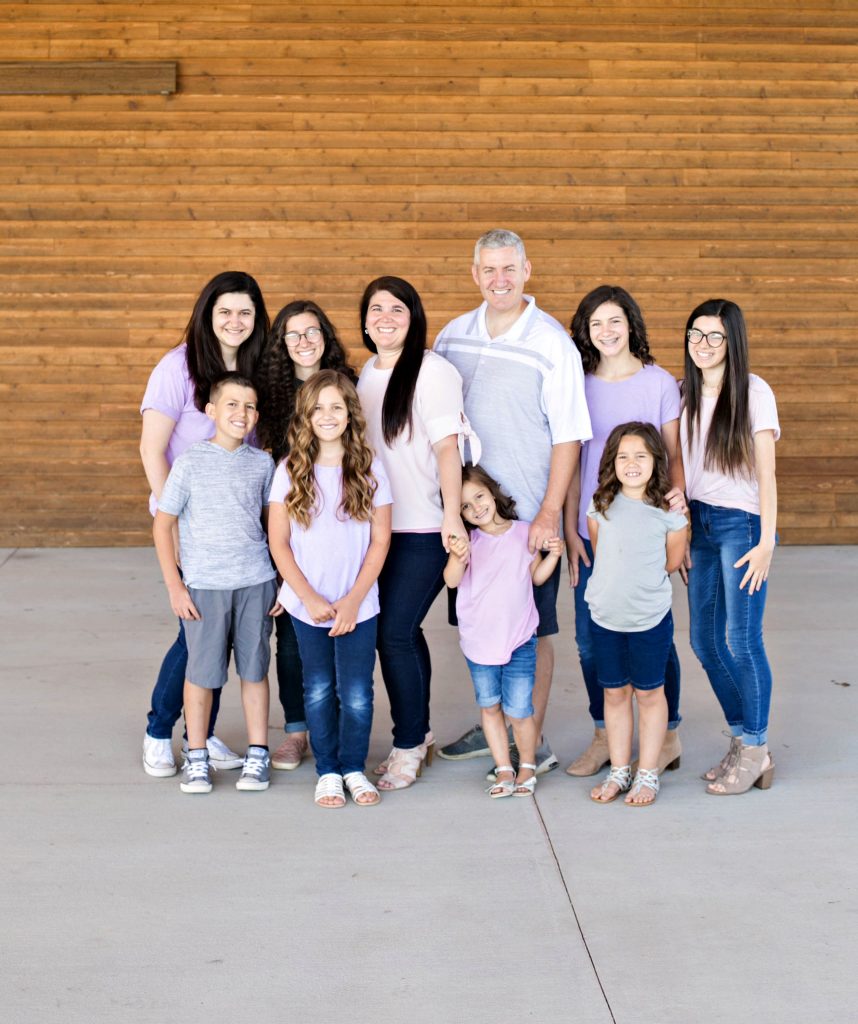
Her parents are still amazed by her leadership. “She ran this through our entire congregation and even into our neighborhood,” her mom says. “We’ve received continual comments about how amazing it is that Kamree is the one spearheading this effort. We’re grateful that she got the opportunity to do this.” Her father, Robb, is excited by the potential that he thinks younger people show. “We can’t underestimate them and what they can do,” he says.
Their church congregation is already asking if this is going to be an ongoing yearly effort. Kamree encourages them and the rest of her community, including her younger siblings who wanted to help, to remember that every little bit counts. When reflecting upon the response of her church, she states that “that’s how it’s supposed to be.” She knows that when we come together and ask partnering agencies and nonprofits what we can do instead of waiting, real change can occur.
